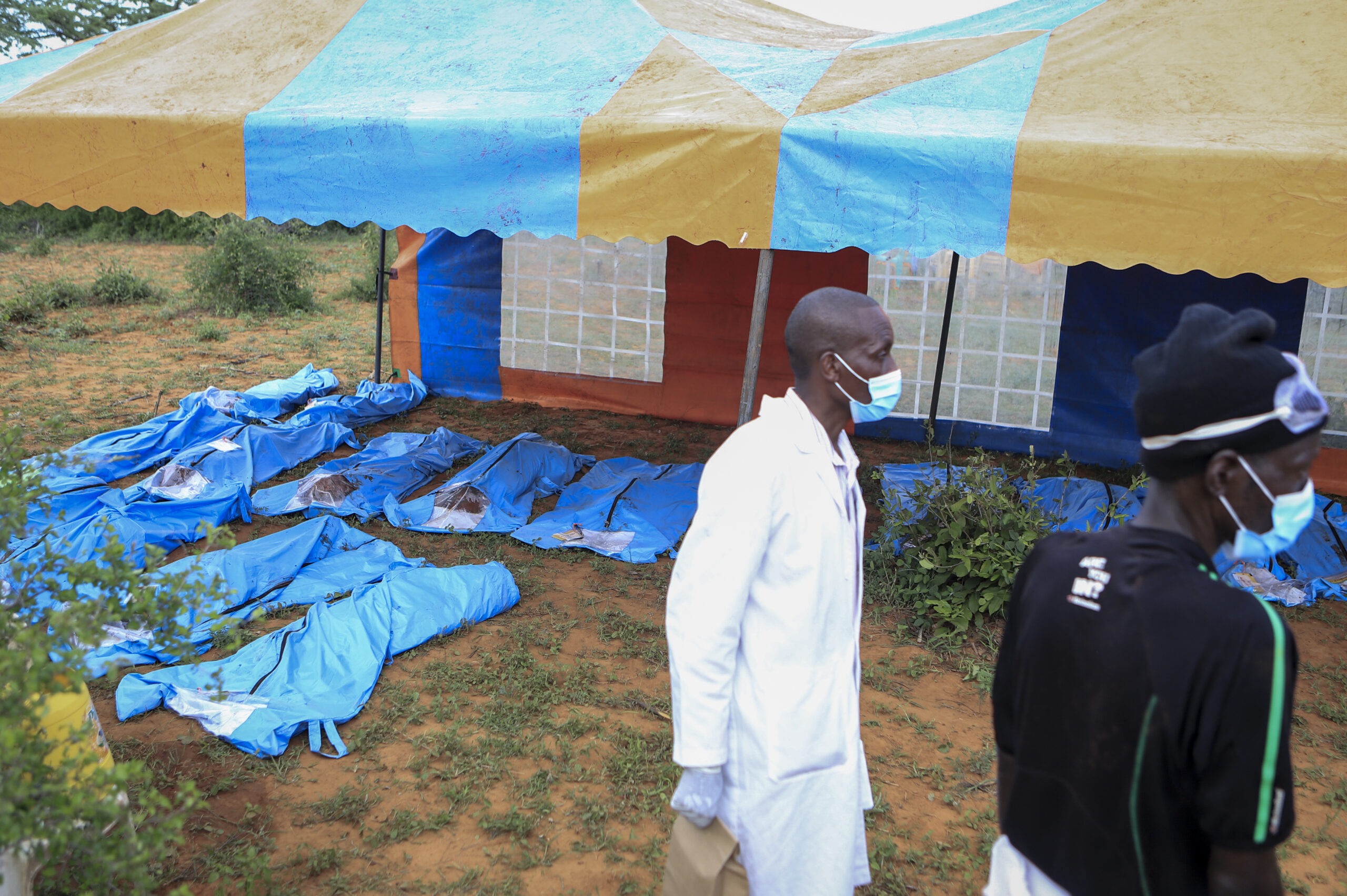NAIROBI, Kenya (RNS) — Paul Mackenzie Nthenge, the self–proclaimed Kenyan pastor who is accused of orchestrating the deaths of more than 400 members of his congregation by starvation, was ruled mentally fit to stand trial by the High Court at Malindi on Tuesday (Feb. 6).
The taxi driver-turned-charismatic preacher faces multiple charges, including murder and terrorism, after being accused of convincing members of his church — some say “cult” — to pray and fast until death, with the goal of meeting Jesus. Authorities allege that when the congregants died, the pastor and his alleged accomplices buried the bodies in shallow graves in the nearby Shakahola forest, in southeastern Kenya.
Nthenge never adopted the flamboyant designer suits and footwear of the most prominent African televangelists, but according to the Kenyan authorities he managed to convince dozens of men and women that the world would end on April 15, 2023.
“He should be held accountable for the deaths of many innocent people, who believed in him as one that God has send to give them hope … but ended up killing them,” Anglican Bishop Alphonce Mwaro Baya of Mombasa told Religion News Service. “He took advantage of the many challenges that the people were going through. There are many challenges — health, social and economic — and anyone who emerges to give hope, people flock to him.”
Baya also called for “mandatory theological formation for clerics so that they can interpret the word of God in the right way. The churches should be vetted and the registered ones monitoring to see if they are doing the right thing.”
Murder in Kenya carries a life sentence.

Exhumed bodies are laid out in the village of Shakahola, near the coastal city of Malindi, in southern Kenya, April 23, 2023. The bodies were discovered in shallow graves on land owned by pastor Paul Mackenzie Nthenge, who was arrested for telling his followers to fast to death. (AP Photo)
Born in 1973, in Lunga Lunga in Kwale County in the coastal region south of Mombasa, Nthenge was the fifth child of Mackenzie Kiseni and Annastacia Mwele’s 10 children. Nthenge’s parents were practicing Baptists in the town near the Tanzania border.
After high school, he trained as a driver and moved to Mombasa City in the early 1990s. He worked as a hawker, selling flour and one time pushing a mkokoteni — a handcart used to carry merchandise.
By the late 1990s, he was driving a taxi in Malindi and attending a local Baptist church. But in 2003, having announced that God had called him, he set up the Good News International Church, whose stated aim was to nurture the faithful ahead of Jesus’ second coming.
In 2017, he launched a YouTube Channel, Times TV, which he used to castigate institutional education, modern medicine and other practices, such as wearing wigs, as demonic. He claimed he had the power to heal.
About the same time, he established a school at the church compound and was later arrested on charges of radicalizing children and telling them not to attend school, saying education was not stipulated in the Bible.
“We were happy that one of us had seen the light and some of us joined his ministry, until he started preaching outside the Bible,” Julius Charo, a taxi driver who worked with Nthenge, told The Standard.
In 2019, Nthenge moved to Shakahola, two hours inland, to flee the “approaching apocalypse” and instructed his followers to move to his ranch, where he named certain areas after biblical cities, such as Sidon, Jericho, Galilee and Bethlehem. He told his friends that he was going to start farming in the forest.
Exactly how he prevailed on his followers to starve themselves is still a mystery. According to investigators, children were to die first, followed by women and men. At least 190 children starved or were suffocated to death, the investigators say.
“It’s an abomination,” said Abdullah Kheir, a university lecturer in several Kenyan universities and a consultant on Islamic affairs. “Such happens in all religions, but no religion allows such. Sometimes, it has no relation with religion.”





